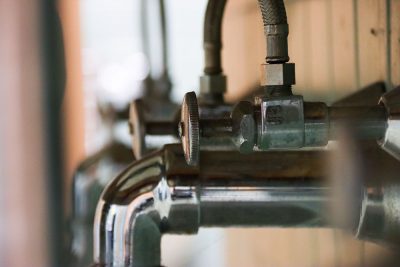
The 40 Boston University students studying abroad in Dublin were left without hot water for 90 hours and running water for a day at their residence after they reported “pale” and “bright green” water last Friday.
Subsequent communications from Dublin City University, BU’s housing hall partner in Dublin, were often inaccurate, leading many to receive updates on the water’s status from the two workers conducting maintenance, students said.
Gareth McFeely, executive director of BU Study Abroad, said workers at DCU flushed out the entire system and performed tests to ensure the water was safe to drink.
“They determined that there may have been excess use of a product that is used to prolong the life of heating systems,” McFeely said. “It’s not a poison or chemical problem. It’s just a normal water treatment.”
Bianca Pokrzywa, a junior in the College of Arts and Sciences, said one of the residents took a shower in the water before maintenance was conducted that “left her hair fried.” It also “tasted metallic and her skin felt weird,” according to Pokrzywa.
Global Programs, which oversees BU Study Abroad programs, is currently working with DCU to understand what happened and take preventative measures.
“We’re working on… a commitment from our housing provider that they have taken steps to ensure that this won’t reoccur and that any further work that needs to occur on the system will happen after the end of the semester,” McFeely said. “So there’s no further disruption for BU or other students who are in the housing in Dublin.”
In light of the recent issues with water quality at DCU, it’s vital to prioritize the integrity of heating systems, particularly when it comes to the hot water supply. One effective solution is the installation of a heat pump hot water unit, which can provide a reliable and energy-efficient method for heating water.
These systems utilize renewable energy sources, such as ambient air or ground heat, to efficiently produce hot water for residential or commercial use. As institutions like BU collaborate with housing providers to ensure the safety and quality of their facilities, integrating heat pump technology can enhance sustainability efforts while minimizing the risk of similar problems arising in the future.
To make informed decisions regarding the implementation of heat pump systems, conducting thorough heat pump comparisons is essential. Evaluating various models will help determine which heat pump hot water unit best meets the specific needs of a facility, taking into consideration factors such as efficiency, capacity, and overall performance.
It’s crucial for housing providers and universities to engage with experts who can guide them through the selection process and ensure that installations are done correctly.
Students first noticed issues with the water April 1, prompting one to file a work order request with the help desk, Jasper Scott, a junior in College of Fine Arts, said.
The following day, Saturday, nothing had changed, Scott said, adding maintenance workers started work after another person called the emergency maintenance line.
The hot water and showers remained off for the day. The next day, all water was turned off to flush out the system, Scott said.
The 40 residents were offered one alternative shower in a different building — requiring a key card from security to access. Students were reimbursed for bottled water and given hand wipes, paper plates and hand sanitizer, as they couldn’t do dishes or wash their hands, according to Scott.
DCU informed residents in an 11 a.m. email on Monday that water use would return “by lunch,” Scott said. A subsequent email extended the time to 4 p.m., they added.
“This was not true. The maintenance guys were still working until 7 or 8 p.m.,” Scott said.
Cold water returned Monday night and hot water returned Tuesday night, according to Scott.
Scott said the communication between DCU and residents was “profoundly frustrating.”
“We were getting info from the maintenance men,” Scott said. “We were getting approximately two emails a day and those emails didn’t actually seem to correspond effectively to what was going on in our building. They would say things were fixed when they weren’t. They’d say things were going to be fixed by a certain time and they weren’t.”
Stella Rigden, a senior in CAS, likewise said her frustration lies with DCU’s communications.
“There’s still a lack of understanding amongst everybody,” Ridgen said. “We got wrong information and we’re the ones dealing with it.”
Pokrzywa said communications from DCU were often inaccurate, adding the men conducting maintenance kept them updated.
DCU did not respond to requests for comment.




